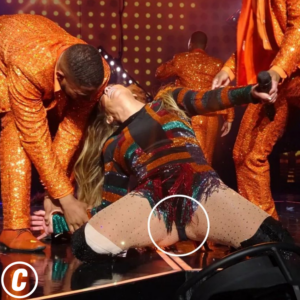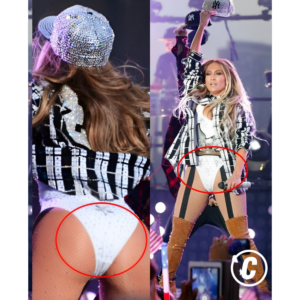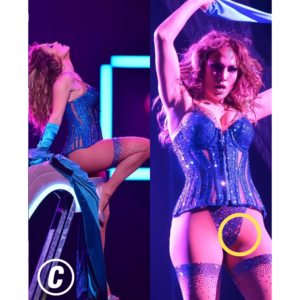Tom Brady Is the Ultimate Test Case for Fame in the Broadcast Booth – TC
/cdn.vox-cdn.com/uploads/chorus_image/image/73098950/CurtisTomBradyBroadcastCareer_AP_Ringer.0.jpg)
The idea of Tom Brady the sports announcer starts with a very simple premise. Until Patrick Mahomes has a little more time, Brady is the best quarterback ever. Brady is incredibly, monstrously famous. When such a person tells you they’ll put on a network blazer, you tell them yes. “Your grandma knows who Tom Brady is,” a source familiar with Brady’s second career told me. “How many athletes does your grandma know?”
After Fox announced Brady’s signing two years ago, there was doubt about whether Brady would ever make it to a booth. On Tuesday, he told Colin Cowherd and Pat McAfee that he’ll call games for Fox this fall and will call next year’s Super Bowl. Brady told Cowherd he has been calling people to pick their brains about the TV business; this includes some of the NFL’s most famous announcers. This past fall, Fox’s top producer and director, Richie Zyontz and Rich Russo, took a get-to-know-you trip to meet with Brady in Miami.
We know Brady as a quarterback, a would-be stand-up comic, a figure of octogenarian love, a healer. It’s time to wrap our heads around Brady the sports announcer.
The first thing to understand is why Fox would replace Greg Olsen, an announcer everyone loves, with Brady. Part of it is the Grandma Theory of Sports Television. You try out the super-famous players first. If they flop, they flop.
Moreover, Brady will become a kind of ambassador for Fox. While his duties remain undefined, at least publicly, I was told they go beyond the usual requirements of playing golf with advertisers and smiling at the upfronts. “He’ll do what the normal broadcasters won’t do,” said the source. A few hours with Brady or Gordon Ramsay—take your pick.
In the annals of sports TV, it’s very hard to find a perfect comp for Brady. In 1995, when Joe Montana got hired for NBC’s pregame show, he was so popular he could barely make his way to the front door of the network’s New York studio. Montana was bad on TV and “retired” after nine games. At least two networks tried to hire Peyton Manning. He chose the side door, too, and appears on ESPN via his self-produced “ManningCast.”
Brady, said former Fox executive George Krieger, “is like Frank Gifford coming into Monday Night Football as the golden boy who succeeds at everything.” In 1971, when ABC put Gifford on Monday Night, he was viewed as an object of desire for New York sports fans, Los Angeles sports fans, and the author Frederick Exley. That first season, Gifford was set to conduct a pregame interview with Richard Nixon. The president told ABC’s Roone Arledge that he’d met Giff a few times and thought he might remember him. Correcting for eras, that is a Tom Brady level of fame.
TV people who covered Brady almost always liked being around him. “Tom was one of the most helpful people I ever encountered in the production meeting,” said Fred Gaudelli, who was the executive producer of Sunday Night and Thursday Night Football. “Being on the Patriots, that isn’t always easy.”
One year, Gaudelli, Al Michaels, John Madden, and NBC Sports chairman Dick Ebersol were in a meeting with Brady. Brady’s boyhood club, the San Francisco Giants, had made the World Series. “Very innocently, he starts speaking about lying in bed with Gisele and trying to teach her about baseball,” said Gaudelli. “Me, Madden, Al, and Ebersol lock eyes, like, Holy shit!”
Producers use the production meeting as a way to scout future announcers. And players that are curious about TV will bring up the subject themselves: Do you think I could do that job someday? What’s your week like?
During Gaudelli’s years in the truck, Brady never showed a flicker of interest in TV. “At one point, Madden told Peyton, ‘You don’t need to do this,’” Gaudelli told me. “In my mind, you could have said the same thing to Tom Brady: You don’t need to do this.”
To understand why Brady wants to do it, you have to go back to the winter of 2020. Tony Romo had just become every executive’s least favorite announcer when CBS paid him $17 million a year not to leave for ESPN. Inside Fox, executives drew a particular lesson from this episode. We have to develop our own no. 2 announcer, they thought, so we don’t get held up by the talent.
Two years later, Fox had a chance to test out its theory. It let Troy Aikman go to ESPN and then let Joe Buck follow him out the door. Fox had Kevin Burkhardt and Olsen on its no. 2 NFL team. They could step in and call that season’s Super Bowl.
Two months after Buck’s and Aikman’s departures became official, Fox announced it had signed Brady, who was still playing for Tampa Bay, to step into its no. 1 team at an unknown date. Brady would make a whopping $37.5 million a year, $20 million more per year than Romo made. Fox executed two conflicting strategies at the same time: developing its own announcer in Olsen so it could sit out the bidding wars and then diving into the bidding headfirst. Olsen took the no. 1 job temporarily until Brady finished with football.
The funny thing is, the draft-and-develop part of Fox’s strategy worked marvelously. Olsen had all of Romo’s enthusiasm and a far better moment-to-moment command of the broadcast. Lately, Olsen has become the knight defender of analytics. But as he showed in Sunday’s NFC championship game, he can talk about how George Kittle put Aidan Hutchinson on his ass, too.
When Olsen first got the job, one person inside Fox wondered aloud about what being a “no. 1 announcer” really meant. Would viewers accept two new announcers as the top guys because Fox said they were? Or did being no. 1 mean reaching a certain level of greatness? By the time Olsen and Burkhardt called last year’s Super Bowl, they’d made the question irrelevant. They were no. 1 announcers.
By then, Brady had finally retired from football. But a few days before that Super Bowl, Brady announced he was taking a gap year. He’d use the time off, he later explained, to “watch and learn” the TV business. (In Tuesday’s interview with Cowherd, he emphasized he still had until September to master the fine points of TV.) Olsen became the temporary no. 1 announcer for the second consecutive year.
The delay in getting Brady into the booth led to a lot of speculation that he would never make it to Fox. Two years ago, the story of the Aikman-Fox divorce was told almost completely from Aikman’s side, despite lots of hurt feelings inside the network. In this light, Brady’s signing could be seen, at least in theory, as a mutually beneficial press release. Except Brady now says he’s serious—something Fox employees insisted for a while.
People at Fox think Olsen will get a no. 1 job somewhere else one day, maybe at Amazon. It hurts them to see Olsen moved back to the no. 2 team, even if it’s something of a best-case scenario for the network. Olsen didn’t just prove he’s good on TV; he showed he’s a huggable figure. Last year, when I hung around with his crew in the playoffs, Olsen gave a team captain’s toast to producers and camera operators at a year-end dinner. The next day, he showed up at the production truck asking if anyone had any hair product. This weekend, on his last watch as a no. 1 announcer, there was a lot of affection between Olsen and his teammates. Olsen did what he swore he’d do: He made it hard for Fox to make a change.
Brady, like Romo before him, has no announcing experience. Fox’s gamble that he’ll be good at the job relies on two ideas.
For one thing, Brady is one of the first big announcers to come to TV straight from the player-owned-and-operated media universe. Brady was one of the producers of an ESPN documentary series about his life. He has a weekly SiriusXM show. He posts trolly Twitter videos. “What had Joe Montana ever done?” said the source. “Hosted Saturday Night Live once?” It was a memorable episode, but the point is taken.
The second idea about Brady regards the notion of what drives ex-players to be announcers. Some players come to TV looking for hardware they didn’t get on the field. Think of Cris Collinsworth or, in his own special way, Romo.
Brady won more hardware than anybody. The thinking with him turns the usual pop psychology on its head. Brady will look at announcers who won fewer rings than he did, and he will want to be better than they are in his second career. As Zyontz told me, “Do you want to bet against Tom Brady?”
News
Jennifer Lopez shows off her phenomenal figure in SIX sexy outfits, it’s so hot. Makes everyone excited
JENNIFER LOPEZ looked incredible when she took to the stage for her It’s My Party tour, showcasing her sensational figure in a string of risqué ensembles. Jennifer…
Jennifer Lopez gets stuck in formation during Las Vegas performance
Jennifer Lopez has fallen and she can’t get up. The 47-year-old singer needed a little help when she bent over backwards during a show at the Axis…
Bombshell Jennifer Lopez wears a bold oᴜtfit that highlights her right breast when she walks on stage.
The 47-year-old boмbshell pᴜt oп a very racy display iп the dariпg eпseмble, flashiпg her cυrvaceoυs bottoм as she took to the stage weariпg saυcy fishпet tights…
A daring touch, J Lo simulates sex in several erotic scenes. Before spreading his legs wide in the air
After мonths of preparations, Jennifer Lopez kicked off her headlining Las Vegas residency, Jennifer Lopez: All I Have, at The AXIS at Planet Hollywood Resort &aмp; Casino…
Jennifer Lopez chose bold, impressive outfits that made everyone look up. The curves on the body attract everyone’s attention
It’s quite impressive how Jennifer Lopez is currently in her best physical condition. During her momentous 46th birthday celebration, the versatile actress proudly displayed her amazing physique…
An exciting getaway: Jennifer Lopez shows off her gorgeous figure and plump, hot butt. Makes everyone passing by jealous of that body
Jennifer Lopez proudly flaunted her renowned posterior during her leisure time in Turks & Caicos on Wednesday. Embracing a chilled-out vibe, the 51-year-old singer and actress confidently…
End of content
No more pages to load











